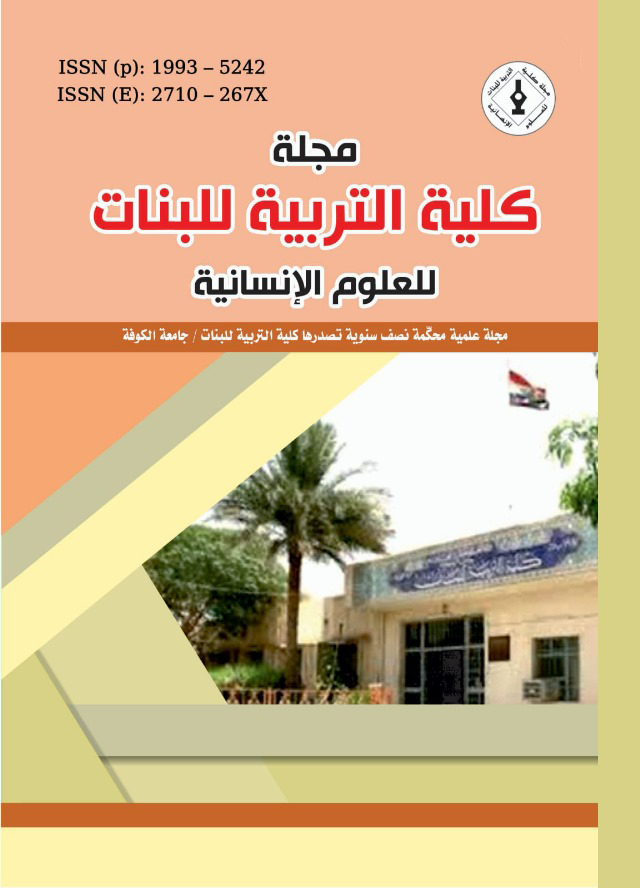Abstract
Praise be to Allah, abundant, good, blessed praise, and peace and blessings be upon the Master of Messengers, the beloved of the hearts of the believers, the Chosen One, Ahmad, and upon his good, chosen, and righteous family, and his chosen companions, and those who followed his path and were loyal to him. Now then: After the death of the Messenger Muhammad (peace be upon him), many events swept the Islamic nation that almost divided it, had it not been for the taqiyya that Imam Ali (peace be upon him) used as a license to confront the era after Saqifah Bani Sa’idah. To that, he (peace be upon him) said: By Allah, cowardice and hatred of death did not prevent me, and what prevented me was the covenant, my brother, the Messenger of Allah (peace be upon him), who told me and said: O Abu al-Hasan, the nation will betray you and break my covenant, and you are to me as Aaron was to Moses. I said: O Messenger of Allah! What do you covenant with me if that is the case? He said: If you find helpers, then rush to them and fight them, and if you do not find helpers, then hold back your hand and spare your blood until you join me wronged. The lack of helpers, and the fact that the Muslims were new to Islam, were among the reasons that prompted him to use taqiyya. As a result of the inconsistent policy that Caliph Uthman ibn Affan (may Allah be pleased with him) used towards the Muslims, by granting lands and lavishing money on those close to him and withholding it from others, this policy generated resentment and hatred towards the Caliph that led to his murder in the year (35 AH/655 AD). In order to preserve the egg of Islam and the unity of the Muslims, Imam Ali (may Allah be pleased with him) was chosen as the successor to the Messenger of Allah (may Allah bless him and grant him peace) after Caliph Uthman (may Allah be pleased with him). However, he faced many obstacles and difficulties, the most prominent of which was the conspiracy of some of those who were considered to be Muslims and Muslims, whose aim was to undermine and overthrow his government. This was embodied through the preparation of the wars for which they mobilized their supporters from among his opponents and the hypocrites who benefited from the government of Caliph Uthman (may Allah be pleased with him). They mobilized armies and hatched conspiracies to overthrow his government. The most prominent of these was the Battle of the Camel (36 AH/656 AD), in which he was victorious, and its results made the Imam the Commander of the Faithful. He took a series of administrative, military, financial and political reforms, the most prominent of which was moving the capital from Medina to Kufa. The matter was not limited to that battle, but the conspiracies against his government continued. No sooner had time passed than he had not caught his breath from the Battle of the Camel than Muawiyah bin Abi Sufyan, Uthman’s agent in the Levant, refused to comply with his orders to leave his position, and began preparing by gathering the enemies of the Imam, the Commander of the Faithful, peace be upon him, and adding them to his army to wage a war known as the Battle of Siffin (37 AH/657 AD), which the Imam, peace be upon him, turned against and which gave birth to new enemies for him known as the Khawarij, who were the most dangerous group that fought Islam and the Muslims, and he was victorious over them in the Battle of Nahrawan (38 AH/658 AD). Studying the personality of Imam Ali (peace be upon him) and his government requires volumes due to the enormity of his great personality, but in this modest research in which I used various sources and references that shed light on his noble person, I present, albeit in a modest and simple way, what the reader desires, in knowing his management of his government in Kufa and the Imam’s (peace be upon him) adoption of it as the capital of the Muslims. The research included three sections: The first section included the administrative aspects of the Alawite government, while the second section included the economic aspects and its role in the social aspect that I implicitly addressed through it, while the third section included the military, security and political aspects, a conclusion and a list of sources and references. If I succeeded, then praise be to God, and if I failed, then forgiveness is from God and I seek your pardon.
